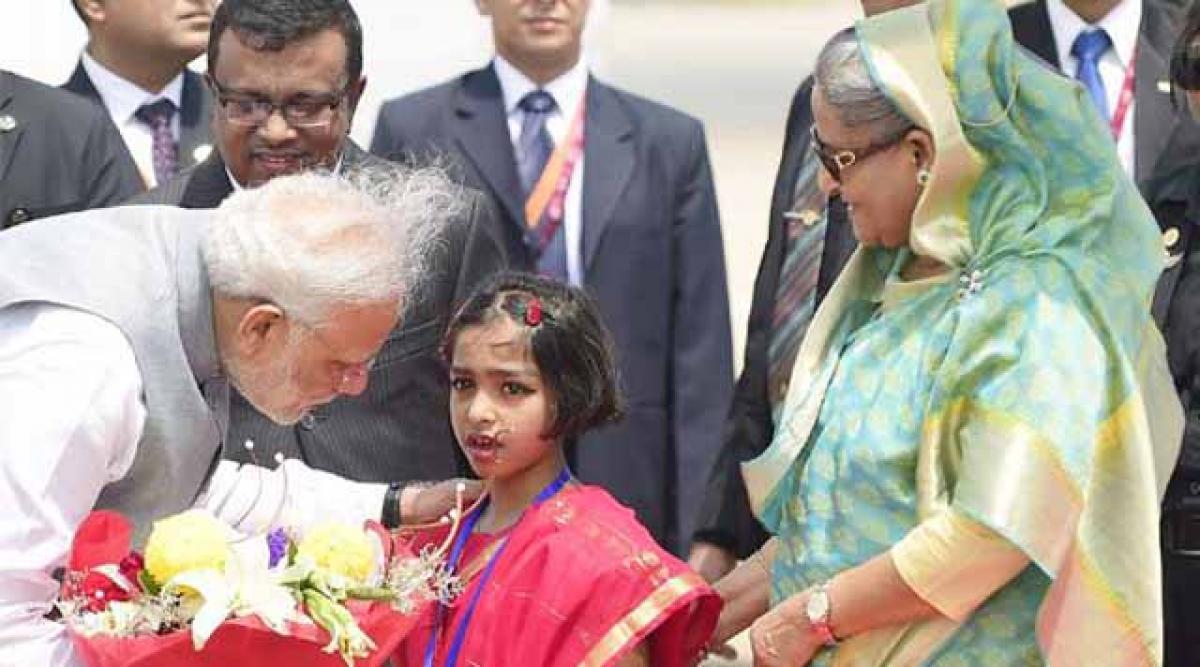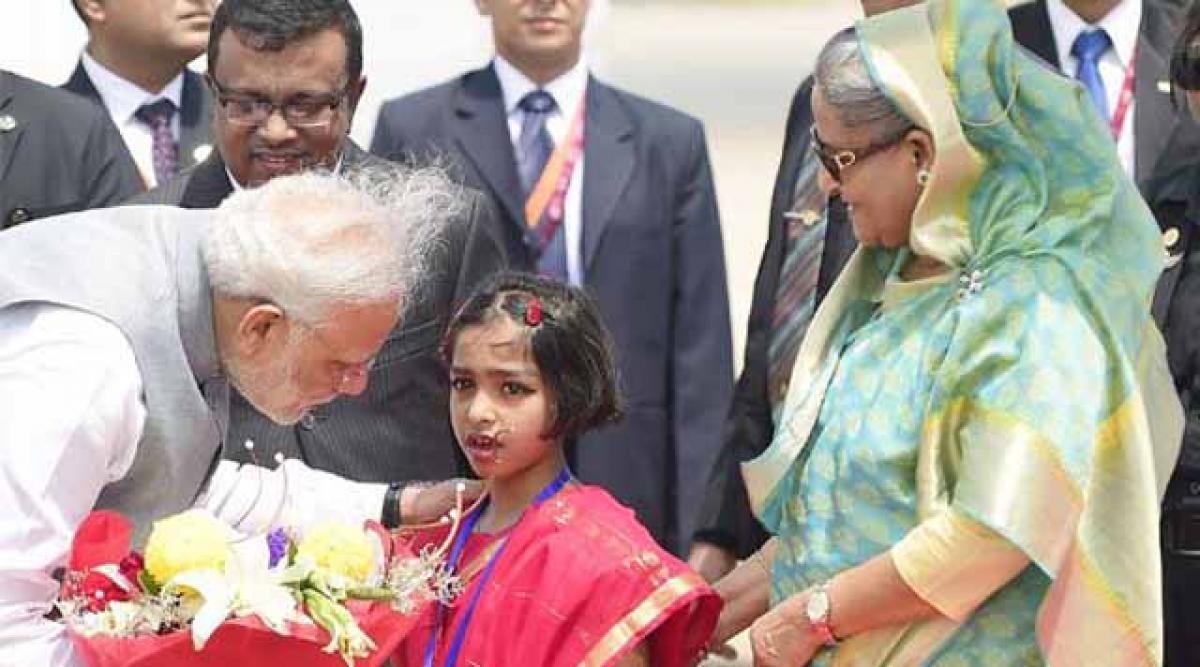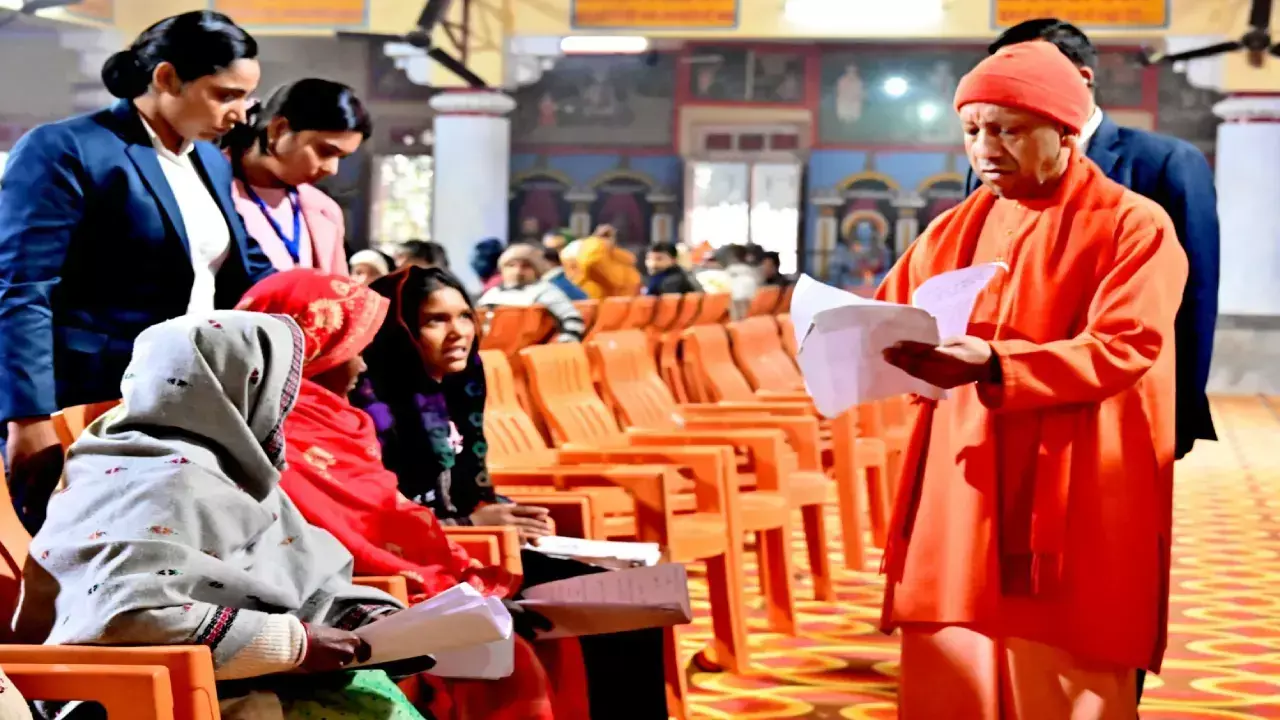Bold move to checkmate China

Bold move to checkmate China. “We cannot love India,” wrote Tahmima Anam, a Bangladeshi novelist in The Guardian in 2007“The relationship is too unequal for romance, and our neighbour is too aggressively self-interested to be embraced as a generous parent.
Apart from the Land Boundary Agreement, another major breakthrough of Modi’s visit to Bangladesh is in transport and connectivity wherein India has successfully removed Bangladesh as one of the pearls in China’s strings, given Dacca agreeing to permitting Indian cargo ships to use its Mongla and Chittagong ports
“We cannot love India,” wrote Tahmima Anam, a Bangladeshi novelist in The Guardian in 2007“The relationship is too unequal for romance, and our neighbour is too aggressively self-interested to be embraced as a generous parent.” From this abysmal point 8 years ago, the wheel has turned around whereby Prime Minister Modi’s recent visit was hailed by the Bangladeshi media as “memorable” and a “watershed” which has accelerated the momentum.

Bangladesh, with which India shares a 4,096-km-long border and is an important aspect of the NDA’s foreign policy saw Foreign Minister Sushma Swaraj make her first foreign visit to Dacca last June, giving New Delhi ample time to settle the contentious Land Boundary Agreement (LBA) issue which was unanimously passed in Parliament.
This set the tone for Modi’s visit. With 22 bilateral agreements under his belt, Modi underscored the “two nations are bound by the threads of history, religion, culture, language and kinship – and, of course, passion for cricket”, adding, “the future I dream for India is the future I wish for Bangladesh.”
The centre piece was clearly the LBA for which the Instruments of Ratification were exchanged. Further, both countries pledged a zero tolerance policy on terrorism and signed MoUs on cooperation in human trafficking, fake currency and narcotics smuggling. New bus link connecting Agartala-Dhaka-Kolkata and Guwahati- Shillong-Dhaka were inaugurated, resulting in the distance from Kolkata to Agartala being reduced from 1,650 km via ‘chicken neck’ to 500 km.
Besides, to counter China’s cheque diplomacy, India announced a second $2 billion line of credit for Bangladesh, the largest line of credit extended to any country by New Delhi barring Afghanistan, for “developmental projects particularly in the area of public transport, roads, railways, inland waterways, ports, ICT, education, health etc.”
Another major breakthrough of the visit is in transport and connectivity wherein India has successfully removed Bangladesh as one of the pearls in China’s strings, given Dacca agreeing to permitting Indian cargo ships to use its Mongla and Chittagong ports. Pertinently, the Chittagong port developed by the Chinese had always been suspiciously viewed by India since its initiation.
Ships will now ferry cargo from Bangladesh to Indian ports instead of going via Singapore as earlier. Further, to lessen the burgeoning close to $6 billion trade deficit of the $6.5 billion bilateral trade, a pact was signed to set up an economic zone which would allow Indian companies to set up a manufacturing base therein and export goods to India. Reportedly, nearly a dozen companies have shown interest in setting up industries there.
Additionally, an inland water transit trade pact was initialed which will allow use of rivers of both countries to promote trade among India’s north-eastern states and adjoining parts of Bangladesh. Dacca, on its part, will gain access to Nepal and Bhutan through Indian territory. Modi and Hasina also signed a pact to promote maritime cooperation in the Bay of Bengal and Indian Ocean.
However, despite making immense headway, there are considerable challenges for taking this bilateral relationship to a higher level. One of the most heated issues is the agreement on Teesta river. Though Sushma Swaraj clarified prior to Modi’s departure that an agreement on Teesta was not on the cards, the Prime Minister indicated in Dhaka that the deal is still alive.
With 54 transnational rivers between the two neighbours and only one Ganga river accord concluded, undoubtedly, this matter shall continue to be an issue of conflict, competition as well as cooperation. Overall, Modi’s visit took bold initiatives in continuation with principles of non-reciprocity of the Gujral doctrine.
Excepting the Chinese who have accused the Prime Minister of leaving Bangladeshis ‘thirsty’ and ‘frustrated’(Xinhua, China’s official news agency), most analysts agree that Modi has deftly taken forward policies and initiatives of his predecessor Manmohan Singh to newer heights. Namely, Bangladesh as an equal and honourable partner, a process which seems irreversible. (INFA)
By Gaurav Kumar Jha















